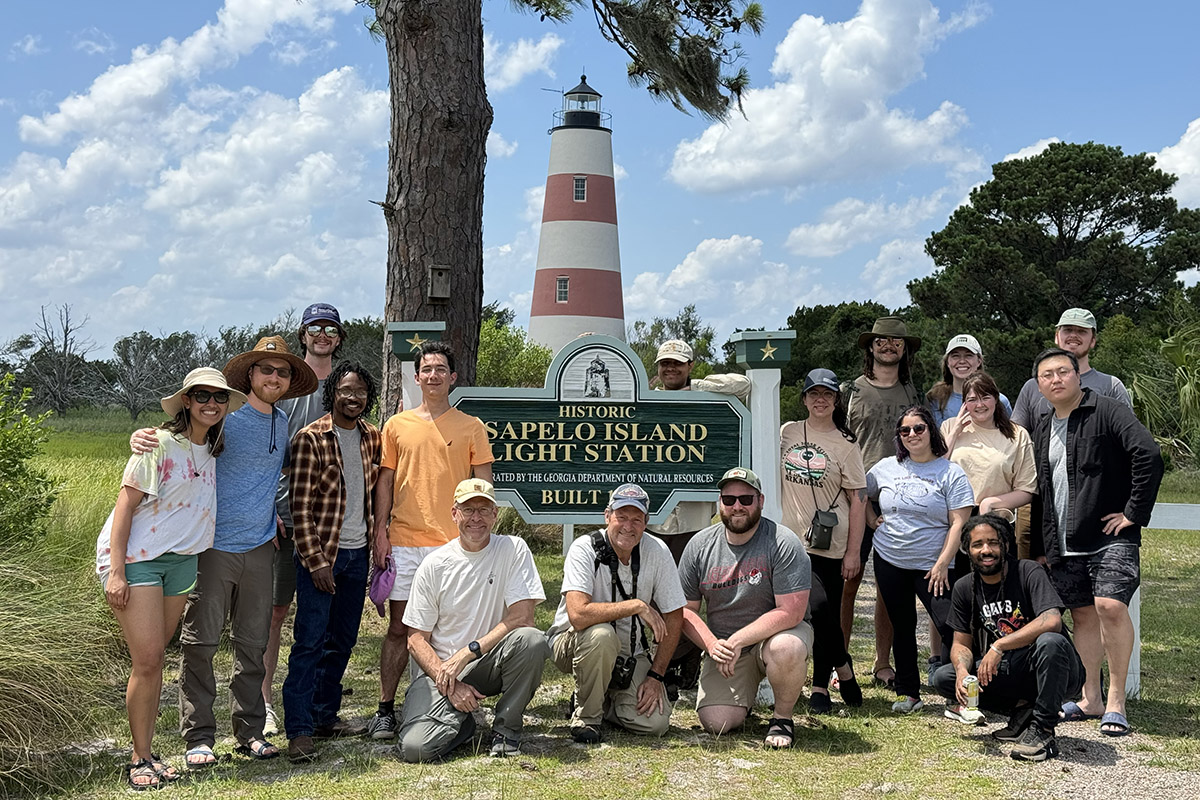
For Joseph McHugh, a career as an entomologist was never in question: He became fascinated by insects and their diversity in grade school and his passion never wavered.
This year, his internationally recognized leadership in the field he loves was rewarded as he was named the Herbert H. and Jean A. Ross Memorial Distinguished Professor of Insect Systematics and Evolutionary Biology at the University of Georgia College of Agricultural and Environmental Sciences.
Honoring a pioneering entomologist and influential educator
Herbert Ross was a leading figure in the world of insect systematics during his time at CAES. Ross served as a faculty member in the Department of Entomology from 1969 until his retirement in 1975. He died in Athens in 1978.
“I am very grateful for being selected to this endowed professorship,” McHugh said. “It is a true honor to be associated with Herbert and Jean Ross. Together they formed a team that made a great impact on the field of insect systematics.”
He added that the influence of the Rosses is felt today. “In the lectures for my insect taxonomy course, I still use some of the excellent illustrations from Herbert’s 1949 book, A Textbook of Entomology, and see his impact on our knowledge of North American Trichoptera taxonomy,” McHugh said.
The Herbert H. and Jean A. Ross Memorial Distinguished Professorship in Insect Systematics and Evolutionary Biology was established through a November 2023 gift from the estate of Charles Alexander Ross to recognize an outstanding faculty member with a record of externally funded research or scholarly publications in the areas of insect systematics and evolutionary biology.
“Insect systematics is a subdiscipline of entomology that operates at a foundational level, often out of sight,” McHugh said. “Systematists discover and describe species, classify them based on evolutionary relationships, maintain an unambiguous nomenclature system for all taxonomic names, curate research collections of specimens, provide identifications, and develop taxonomic resources for other researchers to use.”

Beetle diversity and insect systematics
The research program in the McHugh Lab at UGA is focused on beetle diversity and classification.
“The beetle order, Coleoptera, is huge — about 400,000 named species and millions of additional species that are currently unknown to science,” McHugh said in a recent profile on Cultivate, a CAES storytelling platform. “One out of every four known animal species is some type of beetle, so this one insect group makes up a huge chunk of all life on Earth.”
Because the beetle order is so large and diverse, systematists must focus on some manageable subgroup. Much of McHugh’s research is focused on two superfamilies that together include 40 families and about 19,000 species of beetles.
Yet systematics, the study of biodiversity, is a fundamental field of biology that is often overlooked.
“It suffers from limited research funding opportunities and, perhaps consequently, a limited workforce of trained practitioners, McHugh said. “Since insects make up nearly half of all known species on earth, the study of entomological systematics remains vitally important in biology. This professorship will augment the research and training that is done in my lab by supporting students and providing new research opportunities.”
McHugh’s lab currently supports two graduate students and a lab assistant, with dozens of lab alumni serving in entomology roles around the world.
Beyond research and teaching, McHugh is curator of the UGA Collection of Arthropods, the official state repository of insects and other non-marine arthropods. The collection is part of the Department of Entomology and the Georgia Museum of Natural History.
“The establishment of this distinguished professorship will enable CAES to continue in the kind of cutting-edge entomology research we are known for,” said CAES Dean and Director Nick T. Place. “Dr. Joe McHugh, with his outstanding record in evolutionary biology and insect systematics research, is more than worthy of being the first professor named to the position. Because of the generous support from the estate of Charles Alexander Ross, we are excited to see how Dr. McHugh’s work continues to advance entomology here in Georgia and beyond.”
McHugh shares this excitement, adding, “The establishment of this professorship is a wonderful way to honor the Rosses by supporting the fields of entomological research that were so important to them and ensuring that research and training in insect systematics and evolution will continue at the University of Georgia for the foreseeable future.”






